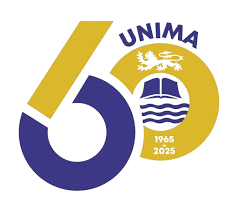INVITATION 8TH AFRICAN REGIONAL CENTRES OF EXPERTISE RCE CONFERENCE ON EDUCATION FOR SUSTAINABLE DEVELOPMENT ESD
Jointly organised by RCE Zomba, University of Malawi (Chancellor College) and United Nations University Institute for the Advanced Study of Sustainability (UNU-IAS) in collaboration with Malawi Environment Endowment Trust (MEET), Centre for Environmental Policy and Advocacy (CEPA) and Beautify Malawi (BEAM)
Date and Venue: 8-10 August 2018 at Chancellor College, Zomba
Website: www.rcenetwork.org/african
Background
An RCE is network of individuals, organizations and experts who are committed to using formal, non-formal and informal education as a tool for implementing Sustainable Development Goals at local level. The network promotes Education for Sustainable Development (ESD) as a core element to societal change and brings together multi-sectoral and interdisciplinary members who might not usually work together. RCE’s view of ESD is that it is ‘fundamentally about values, respect for others including those of present and future generations, for difference and diversity, for the environment and for the resources of the planet we inhabit’. To achieve these aspirations, RCEs raise awareness on ESD challenges, inspire innovation and promote both behavioural change and civic engagement across sectors, thereby helping to build a sustainable future.
RCEs in Africa are playing a useful role in addressing local and regional sustainable development challenges by providing platforms for mobilisation of local communities around priority sustainable development challenges. Through their flagship ESD projects, RCEs in Africa are opening new opportunities for collaboration, linking action across multiple scales (local, regional and global) and facilitating rapid learning and efficient knowledge transfer. Such efforts will support the African Union’s Agenda 2063 and the programme of the New Partnership for Africa’s Development (NEPAD). RCE Zomba is one of the 32 RCEs acknowledged in Africa and is hosted by the University of Malawi, Chancellor College and Leadership for Environment and Development Southern and East Africa (LEAD SEA). Stakeholders include community members, government departments, academia and non-governmental organisations. Activities that promote ESD are focused on forestry, fisheries, agriculture, waste management and land resources.
8th African RCE Conference
African RCEs have been holding annual continental meetings to deliberate issues related to capacity development, community-engaged research and implementation of collaborative ESD projects. Hosting of the RCE conference rotates within the member states in the region. In this regard, Malawi will this year host the 8th RCE African conference comprising plenary and parallel paper presentations on various subthemes. The conference will also have a parallel youth session and a youth round table discussion where all youth related matters will be addressed. The Malawian youths will be able to interact with fellow youths from outside and learn from those that have embraced the entrepreneurship spirit. In addition, we anticipate various forms of presentations including posters and displays from local and international participants. This will be an opportunity to showcase their work, thus increase their visibility and creating more networks with participants from other countries.
Aims and objectives
The 8th African RCE Conference will tease out the steps that should be undertaken in upscaling the impact of African RCE’s in implementing the SDGs. It will be a build-up and preparation for the forthcoming 11th Global RCE Conference that is scheduled for November 2018 in Cebu, Phillipines. The specific objectives of the conference are:
1. Critical reflection on challenges, impact, sustainability and opportunities for implementing and upscaling SDGs and ESD-Global Action Program through RCE activities.
2. Showcase the work of the African RCE network in implementing sustainable development goals and ESD-GAP
3. Share ESD opportunities and challenges associated with implementation of the sustainable development goals.
4. Discuss the roles that adults and youths can play in upscaling SDGs/ESD activities through RCE activities
5. Review the action plan for African RCEs.
6. Discuss current and emerging issues on SDGs, ESD, SD, climate change and environment as they affect African communities.
7. Develop a youth roadmap for implementing SD, SDGs, ESD-GAP and integrate youth into the national SDGs’ implementation plan, policy and programs.
8. Help develop capacities of youth with skills to embrace entrepreneurial spirits and initiatives as well as community project creation.
Expected outcomes
1. Conference publication on shared strategies on upscaling implementing SDGs through ESD
2. Concrete strategies on how to involve the youths and adults alike in RCE actives activities
3. Revised action plan for African RCEs
Conference Theme and subthemes
The three day conference will focus on ‘Up-scaling the Impact of African RCE’s in actualising sustainable development goals (SDGs)’. The subthemes are:
-
Creation of space for multi-stakeholder engagement including local and faith communities
-
Challenges and opportunities in upscaling ESD activities
-
The role of gender and youth in RCEs
-
Role of academia, politicians and the private sector in upscaling RCE activities
-
Role of media in promoting education for sustainable development
-
Curriculum gaps on ESD
-
Innovative technologies to support ESD
-
Appropriate bye-laws on ESD and strategies for enforcement
Abstract format and Submission guidelines:
Paper and poster presentations should adhere to the following format:-
-
Abstracts not exceeding 250 words in MS Word document
-
Times New Roman, double spacing and Font 12;
-
Indicate title and corresponding subtheme
-
Include Introduction, Objectives, Methodology, Results, Discussion and Conclusion;
-
Provide authors last name followed by first name, institutional affiliation, email address and phone number.
Deadline for submission of Abstracts is Saturday 30th June, 2018 and only accepted abstracts will be required to submit full papers by Friday 20th July 2018. All papers will be subjected to a peer review process before publication.
Participation and Registration
Attendance during the conference is free BUT all interested delegates have to register. On-line registration for the conference is now available on the Conference website (website: www.rcezomba.mw). Alternatively, send a scanned copy of the registration form to the conference secretariat: fchirwa@cc,ac,mw and akammwamba@cc.ac.mw or send your details (full name; organisation; address and phone number) to Mrs F. Chirwa, Faculty of Science, Chancellor College, PO Box 280, Zomba by 13 July, 2018.
Conference costs
RCE Zomba will provide conference materials, refreshments and lunches. However, successful applicants will be required to meet own accommodation and transport costs. Institutions are therefore encouraged to support the participation of their delegates at this important conference.
Sponsorship of conference events:
The organizers will be pleased to receive sponsorship for any event related to the conference such as publicity, hall decoration, refreshments and hosting a conference reception. All support will be duly acknowledged during the conference and in publications related to the conference.
Enquiries
All enquiries should be made to the secretariat: Mrs F. Chirwa, Business Partner Science and Mrs A. Kammwamba on +2651524222 during working hours or visit website at www.rcezomba.mw





